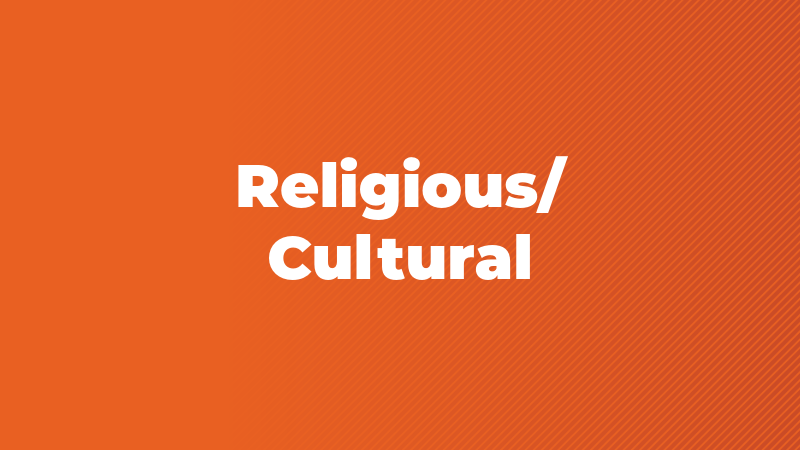Office of the Vice Chancellor for Access, Civil Rights & Community
-
 All Day 12/1/2024
All Day 12/1/2024The season of the Church year immediately preceding Christmas, featuring four solemn Sundays of worship. The season is often observed as an opportunity to prepare for both Christmas and the second coming of Christ as Judge at the Last Day.
-
 12:00 - 1:00 pm 12/5/2024
12:00 - 1:00 pm 12/5/2024Have you heard about the ADA Title II update, or do you want to know more about digital accessibility requirements for Higher Education? Join Keith Hays, campus ADA IT Coordinator, for a presentation on the legal requirements and best practices for public universities.
-
 All Day 12/8/2024
All Day 12/8/2024A celebration of God's unique redemption of Mary at the point of her conception in her mother's womb, preserving her from the burden of original sin and providing her with a holiness consistent with her destined role of bearing the Son of God. Catholics observing Immaculate Conception may request scheduling accommodations in order to observe.
-
 All Day 12/8/2024
All Day 12/8/2024Bodhi Day commemorates the Buddha's achievement of Nirvana, and what this means for Buddhism today. Those observing may do so through additional meditation, study of the Dharma, chanting of Buddhist texts (sutras), or performing kind acts towards other beings. Some Buddhists celebrate with a traditional meal of tea, cake, and readings.
-
 All Day 12/11/2024
All Day 12/11/2024At the beginning of each Bahá'í month, Bahá'ís gather for an observance called the 19-Day Feast. The First of Masá’il (Questions) begins at sunset of the first day and ends at sunset of the last day. It is a three-part observance with devotions, community consultation, and a social portion. Some students or employees may request schedule accommodations in order to observe.
-
 All Day 12/21/2024 - 1/1/2025
All Day 12/21/2024 - 1/1/2025Winter Solstice. Yule is the longest night and the shortest day of the year, and is the time to celebrate the return of the light. Some Wiccans consider Yule to be either the year’s beginning or the end. Yule is the solar turning of the tides, and the newborn Sun offers a fresh start and, literally, a new day. It’s a time of renewal and hope.
-
 All Day 12/25/2024 - 1/2/2025
All Day 12/25/2024 - 1/2/2025Celebrates the Jewish rebellion against the Greeks and the rededication of the temple in Jerusalem. Celebrated by lighting candles each night, singing special songs, reciting prayers, eating foods fried in oil, playing the dreidel game, and giving Chanukah gelt. Begins at sundown of the first day and ends at sundown of the last day.
-
 All Day 12/25/2024
All Day 12/25/2024The Feast of the Nativity of Jesus Christ, which celebrates the Incarnation of God taking on human flesh in the person of Jesus Christ. It is celebrated by erecting Christmas trees, decorating homes, visiting family and friends and exchanging gifts. Some students or employees may request scheduling accommodations in order to observe.
-
 All Day 12/26/2024 - 1/1/2025
All Day 12/26/2024 - 1/1/2025Kwanzaa is an annual seven-day African-American and pan-African holiday celebration that takes place from December 26 to January 1. For seven days, a principle (Nguzo Saba) is reflected upon such as unity, self-determination, collective work and responsibility, cooperative economics, purpose, creativity, and faith.
-
 All Day 12/30/2024
All Day 12/30/2024At the beginning of each Bahá'í month, Bahá'ís gather for an observance called the 19-Day Feast. The First Day of Sharaf (Honour) begins at sunset of the first day and ends at sunset of the last day. It is a three-part observance with devotions, community consultation, and a social portion. Some students or employees may request schedule adjustments in order to observe.

